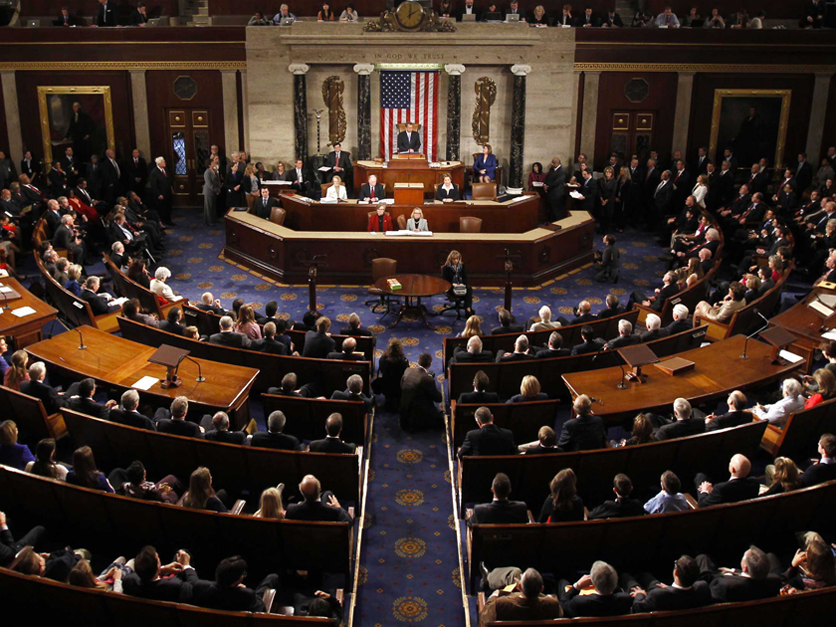House Democratic leaders are pressing for a vote on President Biden’s Build Back Better bill by the end of the week. And to that end, it looks like the final cost estimates for the legislation could arrive in the nick of time.
The Congressional Budget Office says it will issue the full cost estimate for the bill on Friday.
On Monday, CBO issued the estimate for provisions under the purview of the House Ag Committee: $81.7 billion over 10 years. That number includes $27 billion in budget authority for conservation programs over the period, including a $5 billion, $25-per-acre payment for cover crops.
The bill’s forestry programs also will cost an estimated $27 billion, and the bill would provide $25 billion in budget authority for rural development, clean energy and debt relief.
Keep in mind: The estimates are largely in line with estimates provided by the committee. The total doesn’t include the bill’s funding for child nutrition, which is handled by the House Education and Labor Committee.
Tyson boosts prices, blaming demand, higher costs
Profits are up at Tyson Foods as the meatpacking giant raises prices amid soaring consumer demand for its meat and poultry. Tyson reported more than $3 billion in net income for the fiscal year that ended Oct. 2, up from the $2 billion profit it made in fiscal 2020.
In the fourth quarter, Tyson reported sales of $5 billion worth of beef, up 17% from the same quarter last year, on 15% lower volumes. Pork followed a similar pattern: Sales were nearly $1.65 billion, up 20% from the same quarter a year ago despite volumes that were 17.7% lower.
Average prices for beef and pork increased due to strong demand and higher costs for live animals, labor, freight and transportation, the company said.
“We delivered double-digit sales and earnings growth during the fourth quarter and full year, and our performance was supported by our diverse portfolio and continued strength in consumer demand for protein,” said Tyson President and CEO Donnie King.
Keep in mind: Rising meat prices have contributed significantly to the worst inflation U.S. consumers have seen in three decades.
Rise in farmland values seen as healthy sign for ag, Kansas City Fed says
Farmland values have increased 15% over a year ago in the Tenth Federal Reserve District, which includes Colorado, Kansas, Nebraska, Oklahoma and Wyoming; 43 counties in western Missouri; and 14 counties in northern New Mexico.
“Though many risks remain, the agricultural sector will be well positioned heading into 2022 alongside the persistent strength in commodity prices and double-digit gains in land values,” economists Nathan Kauffman and Ty Kreitman of the Kansas City Fed said in an analysis published Monday.
Most lenders in the district are still optimistic about the farm outlook for agriculture but are concerned about rising input costs, Kauffman and Reitman wrote. In addition, “while conditions have improved substantially from recent years throughout the region, the pace of increase in farm income and loan repayment rates was slower in areas most significantly impacted by drought.”
Nevertheless, they added, “farm income and loan repayment rates continued to increase at a steady pace and contributed to multi-year lows in problem loans and asset liquidation.”
Smithfield settles with OSHA, will develop infectious disease plan for pork plants
Smithfield Packaged Meats Corp. will develop an infectious disease preparedness plan for implementation at all of its processing facilities, the Labor Department announced Monday.
The company, the nation’s largest pork processor, is taking the action as part of a settlement agreement with the Occupational Safety and Health Administration, which cited Smithfield “for failing to protect workers from coronavirus hazards” at its Sioux Falls, South Dakota, facility. Smithfield also will pay a fine of $13,494.
Between March 22 and June 16 of last year, nearly 1,300 employees at the plant tested positive for the coronavirus. Forty-three were hospitalized and four “died of complications related to the virus,” OSHA said.
Under the terms of the agreement, Smithfield will keep using its current COVID-19 Preparedness and Response Plan to reduce exposure to the coronavirus “while working with third-party experts to assess plants’ operating procedures and develop the infectious disease preparedness plan,” the Labor Department said.
In a statement, the company said it “remains confident” that allegations of non-compliance “were baseless.” However, “settling with OSHA and avoiding litigation allows Smithfield to continue the good relations it has with the agency, as we have the shared goal of workplace safety.”
Vilsack appointed to task force to help implement infrastructure bill
Ag Secretary Tom Vilsack will serve on an executive-level task force to coordinate implementation of the infrastructure bill signed by President Joe Biden Monday.
The panel is co-chaired by National Economic Council Director Brian Deese and White House Infrastructure Implementation Coordinator Mitch Landrieu.
Other members of the task force are Transportation Secretary Pete Buttigieg, Interior Secretary Deb Haaland, Commerce Secretary Gina Raimondo, Labor Secretary Marty Walsh, Energy Secretary Jennifer Granholm, EPA Administrator Michael Regan, and Office of Personnel Management Director Kiran Ahuja.
Brazil lowers tariff on ethanol imports
Brazil, in an effort to curb inflation, is cutting import tariffs on ethanol imports, but it’s unclear if the move will prompt the country to buy more from the U.S. As of Nov. 5, the Brazilian tariff dropped from 20% to 18%, according to a report by USDA’s Foreign Agricultural Service.
The U.S. had become accustomed to selling ethanol tariff-free to Brazil until last year. Brazil erected the 20% tariff in 2017 in an effort to shield domestic producers, but the country also set up a 198-million-gallon tariff rate quota. That quota expired last year, and the countries’ negotiators failed to reach a deal to reinstate it.
Brazil also cut tariffs on other ag commodity imports, such as beef, blueberries, cheese and whey. The tariff reductions are temporary and are scheduled to remain in effect through Dec. 31, 2022.
Questions? Tips? Comments? Email Bill Tomson at bill@agri-pulse.com
Daybreak Nov. 16: CBO puts estimate on Biden bill’s ag spending




